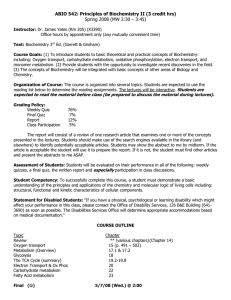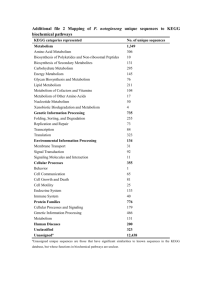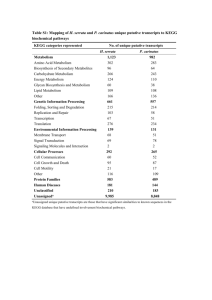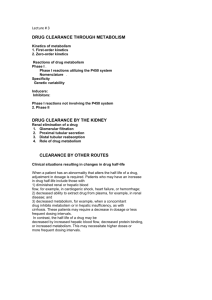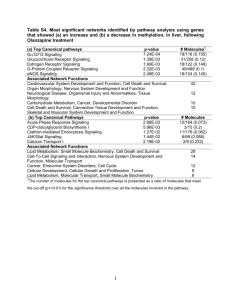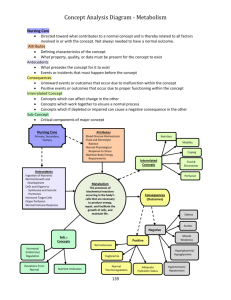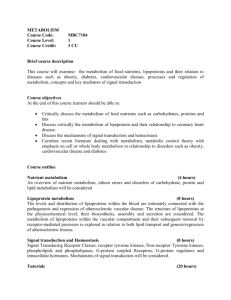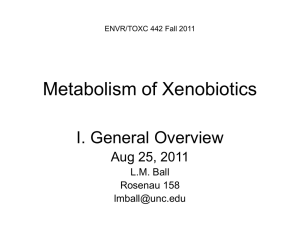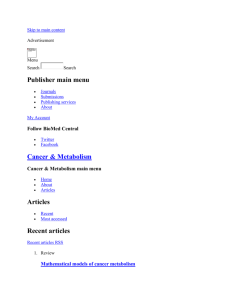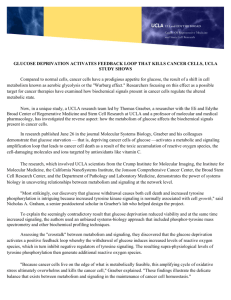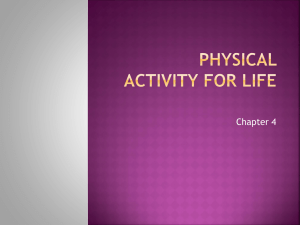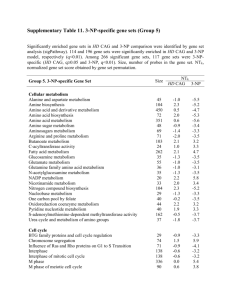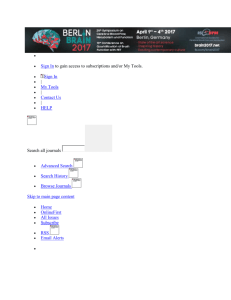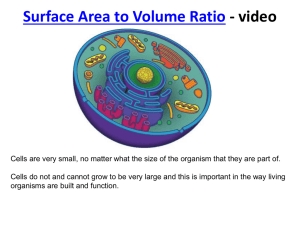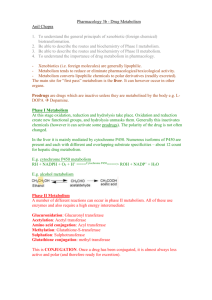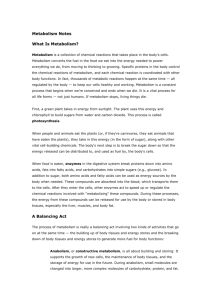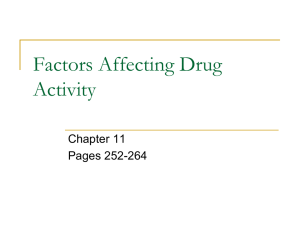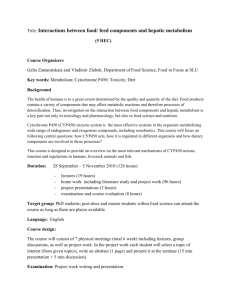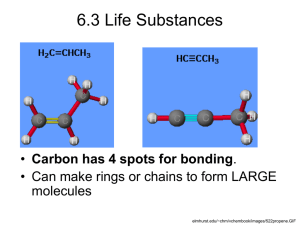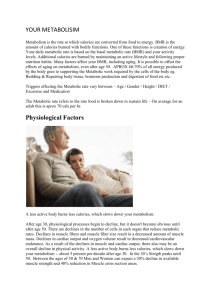CAMB XXX: Stress Responses and Metabolism in Cancer Course
advertisement
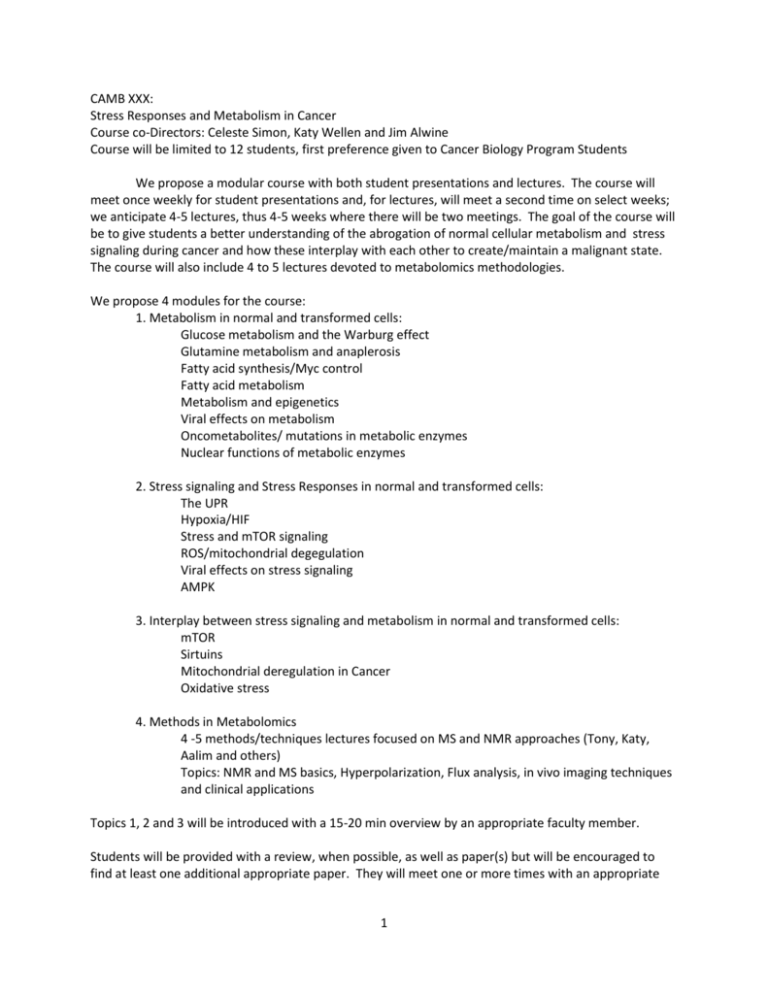
CAMB XXX: Stress Responses and Metabolism in Cancer Course co-Directors: Celeste Simon, Katy Wellen and Jim Alwine Course will be limited to 12 students, first preference given to Cancer Biology Program Students We propose a modular course with both student presentations and lectures. The course will meet once weekly for student presentations and, for lectures, will meet a second time on select weeks; we anticipate 4-5 lectures, thus 4-5 weeks where there will be two meetings. The goal of the course will be to give students a better understanding of the abrogation of normal cellular metabolism and stress signaling during cancer and how these interplay with each other to create/maintain a malignant state. The course will also include 4 to 5 lectures devoted to metabolomics methodologies. We propose 4 modules for the course: 1. Metabolism in normal and transformed cells: Glucose metabolism and the Warburg effect Glutamine metabolism and anaplerosis Fatty acid synthesis/Myc control Fatty acid metabolism Metabolism and epigenetics Viral effects on metabolism Oncometabolites/ mutations in metabolic enzymes Nuclear functions of metabolic enzymes 2. Stress signaling and Stress Responses in normal and transformed cells: The UPR Hypoxia/HIF Stress and mTOR signaling ROS/mitochondrial degegulation Viral effects on stress signaling AMPK 3. Interplay between stress signaling and metabolism in normal and transformed cells: mTOR Sirtuins Mitochondrial deregulation in Cancer Oxidative stress 4. Methods in Metabolomics 4 -5 methods/techniques lectures focused on MS and NMR approaches (Tony, Katy, Aalim and others) Topics: NMR and MS basics, Hyperpolarization, Flux analysis, in vivo imaging techniques and clinical applications Topics 1, 2 and 3 will be introduced with a 15-20 min overview by an appropriate faculty member. Students will be provided with a review, when possible, as well as paper(s) but will be encouraged to find at least one additional appropriate paper. They will meet one or more times with an appropriate 1 faculty member to discuss their paper(s) and the plan for their presentation including background material. Grades will be based on the presentation, demonstrated depth of understanding and class participation/discussion 2
